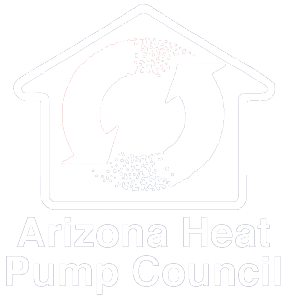 Water is wet. The sky is blue. The desert is dry, and Phoenix runs H-O-T (at a High Operating Temperature). As summer winds down through September, we receive calls from nervous customers who are worried their air conditioner may not make it to the end of summer. July (which is statistically the hottest month), August and September are the toughest months of the year on your AC unit. If your air conditioner is making odd noises, or if your AC unit is not cooling your home properly, you might want to consider having a late summer AC check-up.
Water is wet. The sky is blue. The desert is dry, and Phoenix runs H-O-T (at a High Operating Temperature). As summer winds down through September, we receive calls from nervous customers who are worried their air conditioner may not make it to the end of summer. July (which is statistically the hottest month), August and September are the toughest months of the year on your AC unit. If your air conditioner is making odd noises, or if your AC unit is not cooling your home properly, you might want to consider having a late summer AC check-up.
Why Is an AC Compressor So Important?
Air conditioning systems have many major parts, all of which are important. One of the largest components in your HVAC system and certainly the most expensive to replace is the AC compressor, sometimes referred to as the heart of an air conditioner. Located up on the roof or placed on the grounds outside your home, the compressor functions at the core of the cooling cycle. As is indicated by its name, a compressor pressurizes refrigerant gas and propels it through highly pressurized pipes throughout your entire system, in order to reduce the temperature inside your house and to transfer (remove) unwanted heat outside. There are many factors that can cause your compressor to break down, including:
-
Low Refrigerant Levels
Refrigerant lines are a closed system under pressure and demand very specific amounts of gas to operate efficiently and correctly. Too little refrigerant indicates a leak and will cause problems within your system. Conversely, too much refrigerant can also be an issue. Checking refrigerant levels requires special equipment and should be handled by a professional technician.
-
Leaks or Punctures in the Coils
The system of coils in your air conditioner are designed with twists and turns, which makes it easy for leaks to occur. Miniscule punctures on the coils, barely perceptible to the human eye, can be caused by corrosion. These tiny holes are almost impossible to detect, yet gas slowly escapes. Depending on the age of your air conditioner, corrosion may be affecting the refrigerant level in your compressor.
-
Dirt and Grime Create Clogged Coils
The coils in your compressor expedite the transfer of heat out of your house where it is released to the outside. Unfortunately, coils often attract dirt, debris and grime. When coils acquire a layer of thick grime, it almost acts like a layer of insulation and impedes the heat transfer process. As a result, your compressor ends up working harder to achieve the same level of cooling. Over time, clogged coils can harm your compressor.
-
Electrical Power Problems
Electrical power and the correct voltage (not over, not under) is crucial to the normal operation of your compressor. Over time, depending on how old your AC system is, wires can degrade, and other electrical issues may arise simply due to normal wear and tear. Power surges, which are fairly common during the summer in Phoenix, especially during monsoon season, can cause electrical issues with your AC system. As with all electrical problems – please do not try to handle these repairs on your own. When it comes to electricity, call in the professionals.
Have Your Compressor and Entire AC System Checked Before a Major Breakdown Occurs
Of course, we’re in the business of servicing air conditioners so it might seem self-serving for us to advise you to schedule a checkup at the end of the summer if you’re worried about your air conditioner. However, it is much better for us to catch compressor problems before you reach the point of total breakdown. Remember, you can drive your car with the oil light on for only so long. At a certain point, it’s going to grind to a halt, and you’ll need to replace the entire engine. If you’re concerned about your AC unit, give us a call and we’ll be happy to send someone out to check on it.






